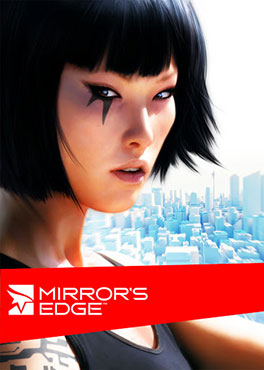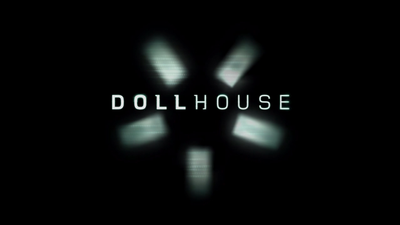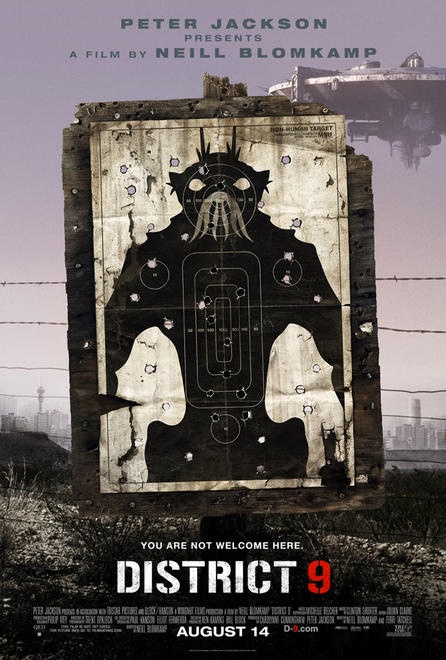
As a concept, the game glowed with the sort of innovative potential that makes game-design nerds like myself salivate with potential. You play as a spunky rebel named Faith, subverting an Orwellian police-state by delivering illegal messages to various rebel factions throughout a sprawling city. The gameplay is based around free-running, the purest mix of movement and awesome this side of ballet. The story is penned by Rhianna Pratchett, daughter of the much-loved Terry Pratchett. The art-style was also really fresh; the nameless metropolis is primarily rendered in sterile, spotless white, and detailed with impossibly bold, jump-off-the-screen shades of blue, tangerine, green and yellow. Best of all, the experience would be brought to us by a EA; one of the big boys, meaning (to my idealistic mind) that all of these ideas would be backed by deep pockets, major man power, and an advertising campaign which would not allow the title to go overlooked. If Mirror's Edge did well, it would be a major battle won in favor of risk-taking game design.
A great deal of my disappointment stems from a fundamental misinterpretation of the game's intention. I half-hoped, half-believed, that the gameplay would be based on a relay-race sort of model. When violence inevitably arose, I imagined it would consist of evasion and fluid attacks that leveraged your improvisational mastery of the environment. Now that I write it all out, it seems like I was hoping for a modern, more realistic take in Sonic, but there was more to it than that. I was hoping for a game that could, and would, evoke vertigo in the player. An electronic experience that would make my stomach lurch as I pitched my character off buildings.
Veritgo is a big deal to because it is one of the four major types of play; the one that has seen the least representation in video games. It's not terribly surprising, seeing how video gaming is almost always a sedentary (read: lazy-ass) activity, but if a game could inspire that level of physical exhiliration and disorientation, it would be a major breakthrough. We would be closer to making games that captured the visceral thrill of roller costers, hang-gliding, and bungee jumping; types of play based solely on physiological sensation. Some audiences were affected by Mirror's Edge, but I was not among them. Maybe it played differently on PC, though I suspect that the sort of physical experience I crave is inherently rooted in physical movement, which really isn't such a bad limitation; especially if one considers the physical possibilities that exist for videogames beyond the valley of silly plastic peripherals, though that is a subject for another post altogether.
Anyway, although it is understandable that Mirror's Edge fell short of my lofty vertigo inducing ideal, the game also failed to satisfy a host of more reasonable expectations. At every corner, the game purports to be about "freedom of movement" and "breaking the mold" while simultaneously dictating how I should play it. It told me when I had to fight the badguys, what moves I should use to fight them, and which path I needed to take through the deceptively large levels. In fact, the levels are large enough for you to get lost in them, but since exploration is not on the agenda, getting lost means getting stuck or dying. Through some diabolical paradox, the game manages to be infuriatingly vague despite it's dictatorial model; The "runner vision" system which promised to guide me with red highlighting is later subverted by arbitrarily red interiors, and you also have an insipid talking head barking vague orders like "Get to the mall!" Meanwhile, helicopter gunships and rent-a-cops pepper your ass with lead. Worst of all, once you finally recognize which path the game has charted for you, and which move from your repertoire it wants you to use to get there, you can attempt the prescribed maneuver fifteen times and plummet to your doom, only to inexplicably succeed on the sixteenth try, with no appreciable variation. It's this kind of bullshit that sends me into apoplectic, controller smashing fits of rage. Lewis Black would be proud, but my spouse was not pleased.
In addition to forestalled dreams and out-right frustrations, Mirror's Edge also has lots of good ideas that don't quite fly, like the controls. Instead of an antiquated, "Press X to Jump, Hold Y to Dash" set-up, you get a "One Button Per Body Part" config that is similar to Assassin's Creed. I am a big fan of these contextually sensitive control schemes, but many of the predetermined button choices are terrible. Bumper buttons, the slightly retarded brother of trigger buttons, don't see much use outside of shooting games because they are kind of awkward. Assigning jumping actions to the left bumper, the least used button on the Xbox controller, in a game where you must constantly jump feels, plainly wrong.
At this point, I've waded knee deep into the realm of personal gripes, so I think I'll call it a day. Mirrors Edge has a lot of potential, and it certainly put a lot of interesting ideas about Vertigo in video gaming into my head, but in my book, it misses the mark. It'll be interesting to see what EA will do with the sequel, though I think I'll watch from a safe distance.








